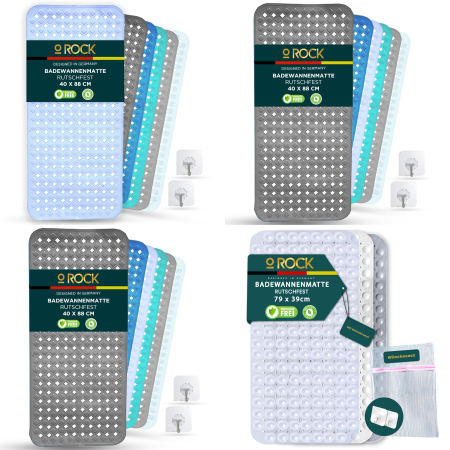Small businesses in today's environment call for ongoing innovation, financial stewardship, and resourceful sourcing. Small business owners find themselves directly competing with big-box stores and e-commerce giants that swamp markets with huge budgets. To simply get by and thrive, companies require cost-effective means of filling shelves, generating traffic, and maintaining profit margins. One of the best solutions is purchasing pallet overstock inventory.
By buying excess pallets, small businesses create opportunities that lower expenses, increase the items they offer for sale, and create sustainable business models. Let's discover why such a business model is so successful and how small companies can make use of it to be successful.
What Is Pallet Surplus Inventory Exactly?
Surplus inventory of pallets is formed by suppliers whenever they need to shift unsold products, customer returns, or clearance stock out of the warehouse. Rather than letting merchandise accumulate, they put it on pallets and sell it for lower prices.
Small companies embrace this option since it is full of variety and value. A pallet can hold home appliances, fashion products, electronics, furniture, or holiday items. Rather than ordering in ginormous amounts from manufacturers, entrepreneurs purchase these pallets, experiment with products for a short period of time, and turn over stock frequently.
This kind of buying is a win-win transaction. Suppliers are able to free up storage space, and resellers acquire good inventory for low prices.
Why Small Businesses are Attracted to Pallet Surplus Inventory
Small businesses utilize pallet surplus inventory because it satisfies three significant criteria:
- Affordability – Entrepreneurs acquire products at significantly lower prices than traditional wholesale.
- Variety – Pallets typically carry a range of products, so resellers are able to diversify without placing enormous bets.
- Sustainability – Companies keep functional products in use and avoid their becoming waste.
- As business owners combine these benefits, they are free to fight on an even playing field with larger rivals with the confidence of continued growth in a healthy way.
Cost Savings That Improve Margins
Entrepreneurs are always looking to save without losing quality. Pallet excess inventory enables them to do so. Wholesale orders normally tend to demand colossal initial capital that drain budgets. Excess pallets are priced at steep discounts since the sellers need to off-load them urgently.
For instance, an owner can purchase branded clothing liquidation pallets at a 60% discount on wholesale prices. The owner's individual piece sales have good margins, and the product is still sold at prices lower than average retail prices. Bargains are provided to customers, and the business can be profitable.
The bulk-buying model also minimizes the unit cost, which releases more cash flow for small retailers. They are able to spend the saved money on customer care, online stores, or advertisements.
More Variety and New Purchasers
Small businesses face the challenge of having a good variety to attract customers. Chains are the giants because chains carry thousands of items. By carrying pallet overstock, entrepreneurs level the playing field.
A pallet is enough to stock home essentials, fashion items, and small electronics. Selling them to customers attracts different buyers. Consumers return as they are aware that new surprises are found with every consignment.
This weekly turnover makes stores a destination, fosters loyalty, and generates repeat business. In contrast to chains that handle generic products, resellers working in small quantities stand out by selling new discoveries every week.
Sustainable Business Practices
Customers are now greatly concerned about sustainability. They want businesses that conserve, recycle, and sustain circular economies. Small companies earn their reputation by selling pallet overstock inventory rather than relying on new production alone.
Each pallet keeps excess inventory in use and out of the landfill. Sharing the experience, resellers link affordability with responsibility. Customers feel good about buying, and businesses create loyalty. Sustainability is a value and, most importantly, a differentiator.
Managing Risks Through Savvy Buying
Each investment in goods has some risk attached to it, but by making use of excess pallets, businesses are able to counter it. Since owners purchase pallets at discounted prices, they minimize the chances of selling nothing.
Take the example of a store buying holiday trim sale inventory. Even when items fail to sell, rock-bottom prices guarantee profitable margins as a whole. The buffer provides scope for experimentation. Small businesspeople can test trendy stuff, try out new lines, or identify seasonal niches without incurring heavy losses.
When firms use pallets as variable testing instruments, they surf shifts in consumer demand successfully.
Unlocking Online Reselling Opportunities
The advent of e-commerce renders overstock pallet inventory more attractive. Internet sites such as Amazon, eBay, and Shopify offer small business owners access to millions of consumers without walls.
A reseller can buy overstock inventory locally, photograph it, and sell online in hours. Fast turnover sells merchandise quicker than traditional retail. With minimal storage requirements and convenient distribution, resellers start their resale business with zero overhead.
Most successful online shops began like this—purchasing pallets, selling individually, and investing profits into incremental growth.
Traps in Buying Pallet Overstock
Not all pallets are a goldmine. Some have slow-moving or lightly used old stock. Successful entrepreneurs who deal in pallet overstock know how to steer clear of traps.
They:
- Selecting quality suppliers.
- Verifying pallet contents and manifests.
- Acquiring small loads to sample quality.
- Estimating shipping charges prior to purchase.
Smart planning makes sure that the advantages outweigh the risk. Over time, companies earn the trust of suppliers and purchase better pallets regularly.
A Few Pallet Surplus Inventory Success Tips
- Conducting thorough research. Dealing with qualified liquidation firms.
- Achieving the ability to meet customer needs. Choosing pallets that fulfill what customers already need.
- Using pallet auctions judiciously. Strategically bidding on the right pallets and avoiding overpayment.
- Streamlining logistics. Maximizing supply chain effectiveness in a bid to reduce transportation and storage charges.
- Selling products aggressively. Using social media, e-mail marketing, and marketplaces as a means to gain new customers.
Through these strategies, excess pallets are a definite and profitable supply sources.
Real-Life Example of Success
Small town retail stores previously had struggled to survive competing against chain national stores. The owner used pallet overstock merchandise and started selling at deep discounts on overstocked items, such as kitchenware, electronics, and clothes. Customers were enamored with bargains and discounts.
The company then went online, selling products at discounted prices on eBay and Amazon. Sales doubled in twelve months, and the company established repeat business locally and online. The story demonstrates the way that excess pallets enable small businesses to compete, expand, and thrive.
The Future of Excess Pallet Inventory
As supply chains generate more surplus goods, there will be even more chances for small firms. Pallets of surplus stock will continue to play an important role in enabling entrepreneurs to tap into low-priced stock.
The trend is that clients will keep demanding affordability and sustainability. Entrepreneurs who adapt to excess pallets today will get the benefits in the long run. They will have a stable flow of goods, more customer loyalty, and better resale strategies.
Conclusion
Small businesses thrive when they are frugal, fast to react, and innovative. Having surplus stock inventory allows them to be all three. Owners save money, expand product offerings, eliminate risk, and build their brand names over time. They also create new avenues of growth using smart web reselling.
By becoming effective sources of supply, observing customer demand, and intelligently managing logistics, small enterprises transform excess pallets into profitability drivers. When efficiency and speedy response are the primary concerns, pallet excess inventory is one of the brightest choices for business owners who aspire to long-term prosperity.









